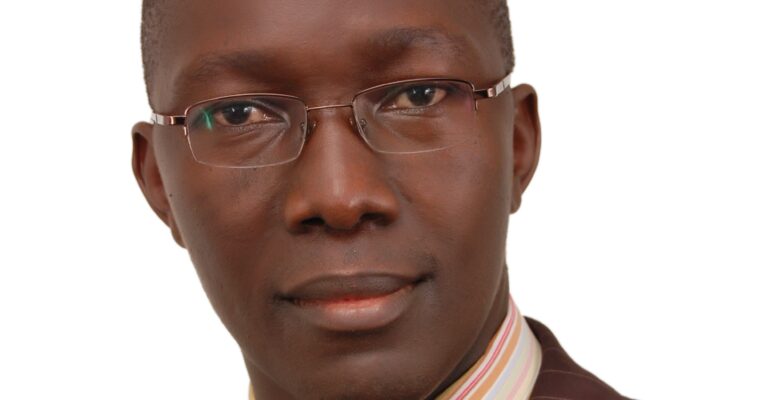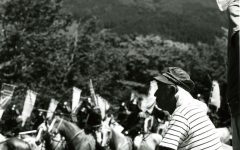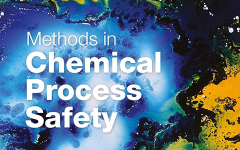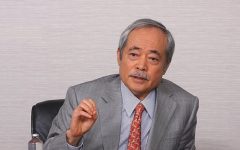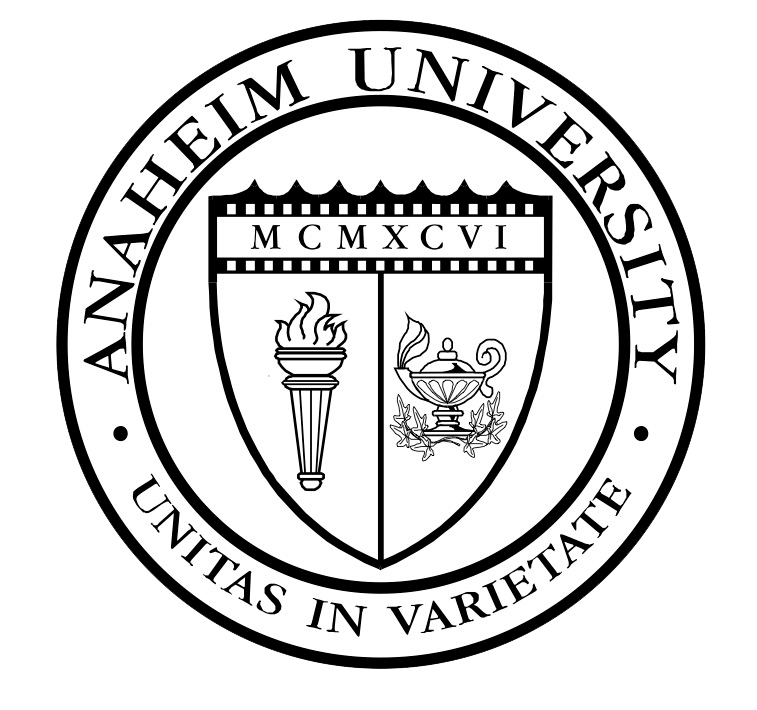Master of Entrepreneurship Graduate Interview – Clayton Mwaka
February 3, 2020 2025-01-17 11:45Master of Entrepreneurship Graduate Interview – Clayton Mwaka
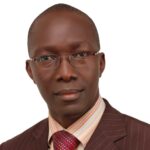
Clayton Mwaka, ME, CPA-U |
1) Why did you choose Anaheim University?
I must say that I came across Anaheim University much later during my search, after spending several weeks considering options and even writing to some Universities, before making a decision. I had been considering doing a Master in Entrepreneurship for about two years before but had not gotten around to making a decision. The focused search commenced after I made a decision to proceed with the program. Principally, I found Anaheim fees affordable in light of several issues, and the online approach also could enable me to study from whichever part of the world I was in. The profiles of the faculty also greatly impressed me.
2) Can you tell us briefly about your career?
I have been working in various roles for the last 27 years, since 1992, when I concluded my Bachelor of Commerce degree (specializing in accounting), at Makerere University in Kampala. I later studied ACCA (which I did entirely with home study without a single lecture) and became a Fellow of the Association of Chartered Certified Accountants (FCCA), and also a Certified Public Accountant of Uganda (CPA-U). The Anaheim ME program followed my M.Sc in Professional Accounting with University of London.
I began my career as an accountant, and later worked in positions such as Group Accountant, Principal Internal Auditor, Financial Controller, Managing Partner (in external audit and consulting), and Finance Director/Chief Financial Officer. My work history has covered industries such as chemicals and pharmaceuticals, food (FMCG) and animal feeds, building and construction (steel industry), external audit and consulting, and commodities (coffee). I worked in several Groups of companies in Uganda, and also did expatriate assignments in Nigeria and Tanzania.
Beyond my core accountancy profession, I’m also a Certified Business Mentor under ACCA, Youth Business International (YBI) and Enterprise Uganda partnership, and in that I mentored a few young entrepreneurs. I have also written and published two books so far. I enjoy tapping from great minds of other people through reading books. I enjoy doing several things beyond core accounting, since I like developing capacity in people and organizations. I thrive in challenging and multi-tasking environments that provide solutions and change, so in reality my career and activities go way beyond professional accounting. I sometimes find pure accounting boring, but I’m not a boring accountant.
3) Why did you choose to earn a ME?
I have always believed that entrepreneurship can provide various solutions to the challenges of humanity; hence my keen interest in it. That partly resulted into the book entitled ‘The Wise Entrepreneur’ which I published several years back (available on Amazon), and also blogging on various entrepreneurship issues. I have also been involved in several start-ups and mentoring young entrepreneurs as mentioned earlier. The Anaheim ME to me was like sharpening my skills further: to be able to add more value to entrepreneurship globally, whilst also positively impacting other enterprises and entrepreneurs generally towards creating value as well as having better societies and providing solutions to some of the challenges of humanity.
4) What do you like best about the program?
The ease of accessing various professors running the courses was a big plus for me. Other things I liked included interfacing with globally renowned experts and leaders (non-academic) arranged occasionally by the University for the Real-time Meetings, the very engaging and continuous online discussions amongst students and professors with various perspectives, and the global diversity amongst students attending the program.
5) What was your favorite course from the program?
I particularly enjoyed Entrepreneurial Innovation (ENT 500), in which we formed teams for a simulation exercise we did for several weeks, managing a carbon bike business globally. Due to the small class, our team comprised only two of us, Junie Djamen (an origin of West Africa who migrated to the US) and me, based in Uganda. This online exercise involved making real business decisions spanning the entire business, such as business strategy, product design and manufacturing, selling and distribution, financing, human capital etc. I found this very useful because it enables students to understand and appreciate practical and real world business issues. We made use of logical decision making, feedback from the market, and synchronization of our decisions to dominate the market for three weeks (equivalent to 3 years) out of the six weeks, but also learnt very hard lessons by underestimating our competitors’ potential to adapt and fight back, which made us lose significant market share during the last (sixth) week. We did not have the opportunity to make a powerful comeback as the exercise ended (to my disappointment). Another very interesting thing in this program was the study of Hybrid organizations such as Grameen Danone Foods Ltd. (a Social Business), Sanergy: Tackling Sanitation in Kenyan Slums, among others. Some of these social enterprises are a notch higher in addressing social problems, compared to the common CSR phrases and activities we see around.
6) How do you balance the time required to study while working full-time?
This is not an easy thing, and I’m sure everyone faces some challenges. Oftentimes I could study in the middle of the night during working days, and also for many hours over weekends, to catch up with the pace of study and also doing weekly assignments on time. I did not see any easier way to handle this other than sacrificing more time. I also got used to working and doing academic reading while travelling by road and air. Oftentimes transit time at airports was very useful time to catch up with some assignments.
7) Do you feel you were part of a learning community?
Absolutely! The online academic community was quite engaging and I loved the online discussions on various topics. The professors were also actively participating in these online activities and I found this very valuable. Moreover, having at least two online meetings with our professors, each lasting at least an hour, sometimes with very distinguished guests from the corporate world, made the online learning opportunity very rich.
8) What was the most unusual location you joined an online class or discussion forum from so far?
I don’t think I had the most unusual location but I did a number of real-time online meetings and also forum discussions with professors and colleagues while I was in hotel rooms, arising from business and personal travel. Some of these locations included Nairobi, Dar es Salaam and Arusha in Tanzania, Chingola (Zambia), and Amsterdam. The good thing is that I have, over the years, adapted to working literally anywhere and I have sometimes parked my car by the highway to do some urgent work on my laptop before continuing with my drive.
9) What would you say to someone who is hesitant about studying online?
Some young people today use the phrase ‘style-up’ to mean that one should embrace technological and other advances in the world. I would use the same phrase to someone who is hesitant about studying online. Many aspects of life have gone online hence online study cannot be avoided. Actually, I find that almost any form of knowledge one needs today can be obtained online. However, while I embraced this, I have intentionally avoided online social platforms such as WhatsApp simply because I find them too crowded, noisy and time wasting. I prefer to make better use of my time in other ways, without offending social media fans.
10) Do you feel the ME will help to develop your career?
Certainly! I oftentimes think that accountants who are not entrepreneurial limit the value they add to organizations and society, in whatever role they play whether internally or externally. There are some decision situations in business that require accountants to put aside the purely financial elements and consider the non-financial elements that with time turn out to be financial, or impact the financial. My career has been greatly enhanced by the ME though I had already ventured into entrepreneurship study and practice much earlier.
11) What is your career plan after completing ME?
I’m not in a rush to make any drastic changes at the moment, though I have some business related plans for the medium term (3-5 yrs).
12) What advice would you offer to the Anaheim University incoming students?
Anaheim University offers a very rich and fast-paced learning environment, which students globally can take advantage of even remotely, to get a world class education. You simply need to have a high internal drive to explore and learn widely, with focus and good time management. Being offsite (if you are) does not mean that you should be slack, because you certainly get what you deserve as you go through the program.

